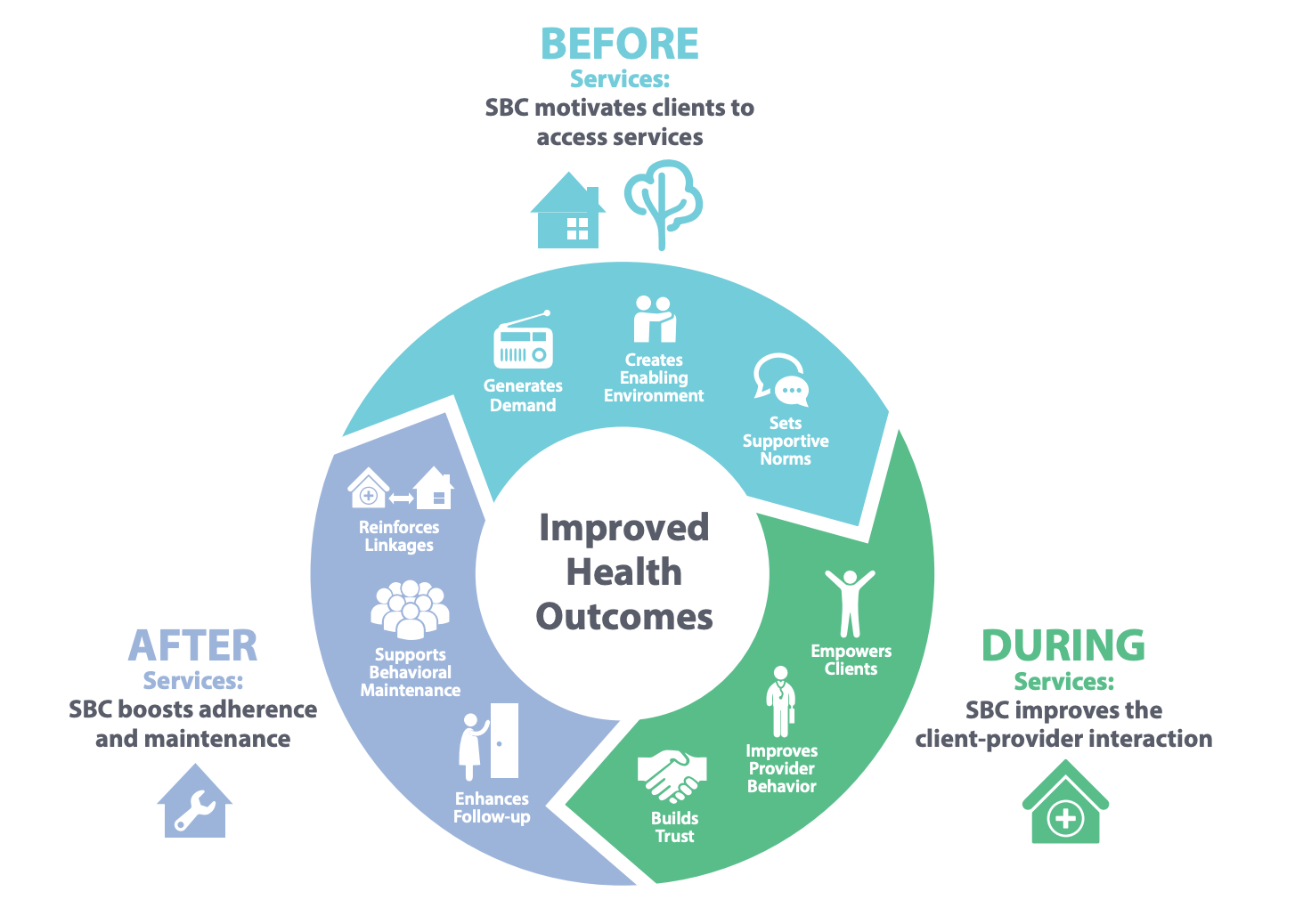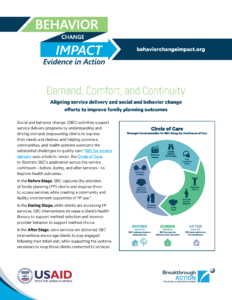The Circle of Care is a holistic model that shows how social and behavior change (SBC) can be applied across the service continuum—before, during, and after services—to improve health outcomes. The model focuses on service interactions: the use of SBC to motivate clients to access services (before services), to improve the client-provider interaction (during services), and to boost adherence and maintenance (after services). It includes considerations of social and cultural norms that impact service use (or non-use) and delivery, the physical environment in which services are delivered, and the communication that takes place between a client and provider.
Three key principles guide this model:
- Promoting effective coordination among SBC and service delivery partners—encourages a common understanding for program planning, message development, intervention approaches, and monitoring and evaluation
- Segmenting, prioritizing, and profiling key audiences—helps to understand the intended audience and their specific needs, values, and barriers to change
- Addressing providers as a behavior change audience—ensures providers are seen as individuals who have needs and barriers to adopting desired behaviors related to their performance.
The Circle of Care model is also available in French and Arabic.
© 2021, Johns Hopkins University. All rights reserved.
LEARN MORE
ENGLISH
From Vision to Action: Guidance for Implementing the Circle of Care Model [PDF]
The Circle of Care Model: SBC Along the Service Delivery Continuum [PDF]
Circle of Care Video [YouTube]
Demand, Comfort, and Continuity: Aligning Service Delivery and SBC Efforts to Improve FP Outcomes [PDF]
Circle of Care: SBC Before Services [PDF]
Circle of Care: SBC During Services [PDF]
MORE INFORMATION



